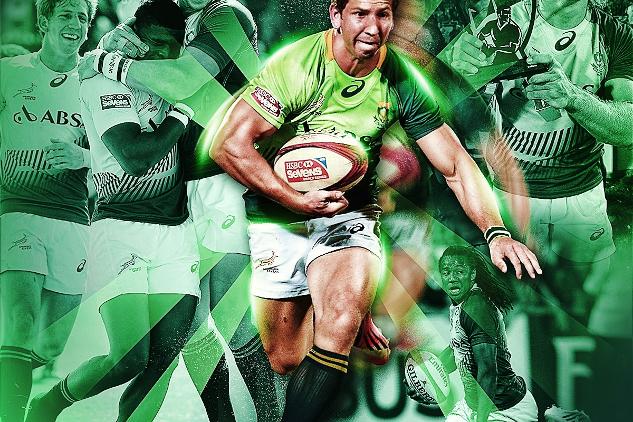Rugby has known a few milestones in its long and glorious history.
The change in points for try-scoring, for one. The shift to professionalism in 1995 is another. Not forgetting the dawn of rugby’s first global superstar, Jonah Lomu, in South Africa no less.
The coming week will mark another with Sevens’ bow at the Olympic Games. Hair-splitters will say that rugby has long been associated with the Olympics, but there’s a world of difference between the US winning gold in 1924 and the athletes aiming to do so in 2016.
The pursuits are vastly different, not least because Sevens barely existed 92 years ago. Nor did full-time pros who could measure their body fat in single digits.
The Sevens World Series, a travelling circus with stops all over the globe, was started in 1999. The ambition was to establish a true world tour that could ignite Olympic participation. Rugby earned its spurs early and 10 years later Sevens was welcomed into the Olympic family.
It was a profound moment. Many sports flounder in the backwaters without official recognition. Yet Olympic endorsement flicks the switch on a range of changes, chiefly funding. Governments get involved, sponsors line up and energy surges through a sport.
This was true with Sevens. After the Olympic nod, teams like Spain, Kenya, Portugal and others suddenly took it to heart (thankfully the pesky Russians failed to qualify for Rio). The discipline has since flourished and Sevens has carved out a solid niche of its own. It has rugby’s imprimatur, but it’s faster, looser and demands greater fitness levels.
As a television product, it’s compelling. Matches are played at a furious pace, there’s a premium on try-scoring and the time-wasting that pock-marks 15-man rugby is frowned upon.
The Blitzbokke have long been among the competition elites. They won the 2008/09 World Series and in most other years they’ve been in the mix. This isn’t by accident. SA Rugby has invested big money and resources, including the very best of sports science, into the squad. As a consequence, they’ve had tournaments where they have ripped top teams like Fiji and New Zealand to pieces.
There’s a good balance to the 2016 SA vintage, but the one area of their game that has been troubling in recent years has been their lack of consistency. One week they will beat allcomers; the next they’ll lose to Scotland or Kenya.
The nature of Sevens, with its whizz-bang action, means that any team off its game by just two or three percent can get blitzed. Pace is everything in Sevens and mistakes are feasted upon.
”I’In Seabelo Senatla and Cecil Afrika SA boast two of the game’s superstars’
The especially encouraging aspect of the Blitzbokke, expertly coached by Neil Powell, is that, like the Lions, their methods are very non-South African. They play with panache and freedom and in Seabelo Senatla and Cecil Afrika they boast two of the games’ superstars.
Senatla is one of the players who deserves to be set loose in the 15-man code. His attacking instincts are razor-sharp.
The other exciting prospect about the Blitzbokke is how transformed they are. Quotas aren’t necessary. The best get selected and the result is a team that more or less reflects the demographics. They win, too, proving that success and transformation aren’t mutually exclusive.
Beer and partying is central to Sevens success, so it’s no surprise that last week 60 000 tickets were instantly snapped up for the Cape Town Sevens.
I’m betting that Sevens will set Rio de Janeiro alight too, even though they’ve plonked the event in the temporary Deodoro Stadium, which seats just 15 000.
Imagine blending the charisma and artistry with the Fijians, led by the mesmerising Osea Kolinisau, with the clinical approach of the New Zealanders, who have the biggest man with the best hands in the business, Sonny Bill Williams. We await the fireworks.
As ever, the tournament will be short and sharp. The men start on Tuesday and it’s all done and dusted by Thursday. The Blitzbokke are ranked second and seeded to play New Zealand in the semifinals. My hands are already sweating for that one.
This is another great moment for rugby. A new, curious audience will get a taste of it for the first time. They won’t be sorry. – © Sunday Tribune

